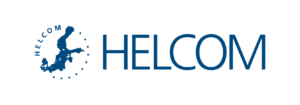The central role of Regional Seas Conventions such as HELCOM in the fight against the global pressure of marine litter was underscored at a key G7 workshop on marine litter that took place in Metz, France from 5 to 6 May 2019. The workshop is part of the implementation process of the . It was organised by France who currently holds the G7 presidency, together with the (UNEP/MAP – Barcelona Convention) and with support of Italy.”Workshops like the one in Metz give us a good opportunity to articulate regional actions on marine litter and to identify the next common implementation priorities,” said Monika Stankiewicz, the HELCOM Executive Secretary. “There are clear synergies between the various frameworks – national, G7, EU, HELCOM and other regional sea conventions, and the UN. By joining forces, we can efficiently deal with the global and cross-sectoral issue of marine litter.”The ‘G7 Action Plan to Combat Marine Litter in Synergy with the Regional Seas Conventions Workshop’, the full name of the event, resulted in a list of issues that was commonly seen as needed to accelerate the implementation of the plan at national and regional levels. The outcome of the workshop was presented by the Coordinator of UN Environment/Mediterranean Action Plan, Mr Gaetano Leone, to the meeting of the G7 Ministers of the Environment on 6 May 2019.At the workshop, increased cooperation with regional fisheries organisations to address marine litter was also considered as essential. “We need to cooperate more with fisheries organisations, especially on the issue of ghost fishing gear,” said Marta Ruiz, the HELCOM expert on marine litter. Ghost fishing gear, or so-called “abandoned, lost or otherwise discarded fishing gear” (ALDFG), still is a major source of marine pollution and poses a direct threat to marine life. Knowledge sharing and outreach campaigns on marine litter also came into the focus of the workshop, seeking to share best practices and improving stakeholder involvement from both civil society and economic sector. In Metz, the rising number of global awareness campaigns since the inception of the Action Plan was particularly lauded.In 2015, the G7 signed the Action Plan to Combat Marine Litter in Schloss Elmau, Germany. Since then, the Action Plan has been constantly reviewed in subsequent G7 meetings. The first Workshop on Marine Litter – that focused on the implementation of the Action Plan – was held in Rome, Italy in 2017. The workshop was attended by four G7 countries, the EU, the four European regional seas organisations – HELCOM, OSPAR, UNEP/MAP (Barcelona Convention), and the Black Sea Commission. Others were the Nairobi Convention and the Caribbean Environment Programme of the Cartagena Convention. All these regional seas organisations include at least one G7 member if not more. The Food and Agriculture Organization (FAO), GESAMP (Joint Group of Experts on the Scientific Aspects of Marine Environment Protection of the United Nations) as well as a number of NGOs and associations from the private sector also participated. For its part, to address marine litter in the Baltic Sea, HELCOM has adopted its own in 2015. Comprised of a recommendation and a set of regional and national actions, the HELCOM plan seeks to prevent and reduce marine litter already at its main sources, before it enters the sea. The plan also pushes for the development of common indicators and associated targets related to quantities, composition, sources and pathways of marine litter. The main focus areas of the plan are waste prevention and management, plastic litter, micro particles including microplastics, sewage related litter such as sanitary waste and lost fishing gear.
The central role of Regional Seas Conventions such as HELCOM in the fight against the global pressure of marine litter was underscored at a key G7 workshop on marine litter that took place in Metz, France from 5 to 6 May 2019.

